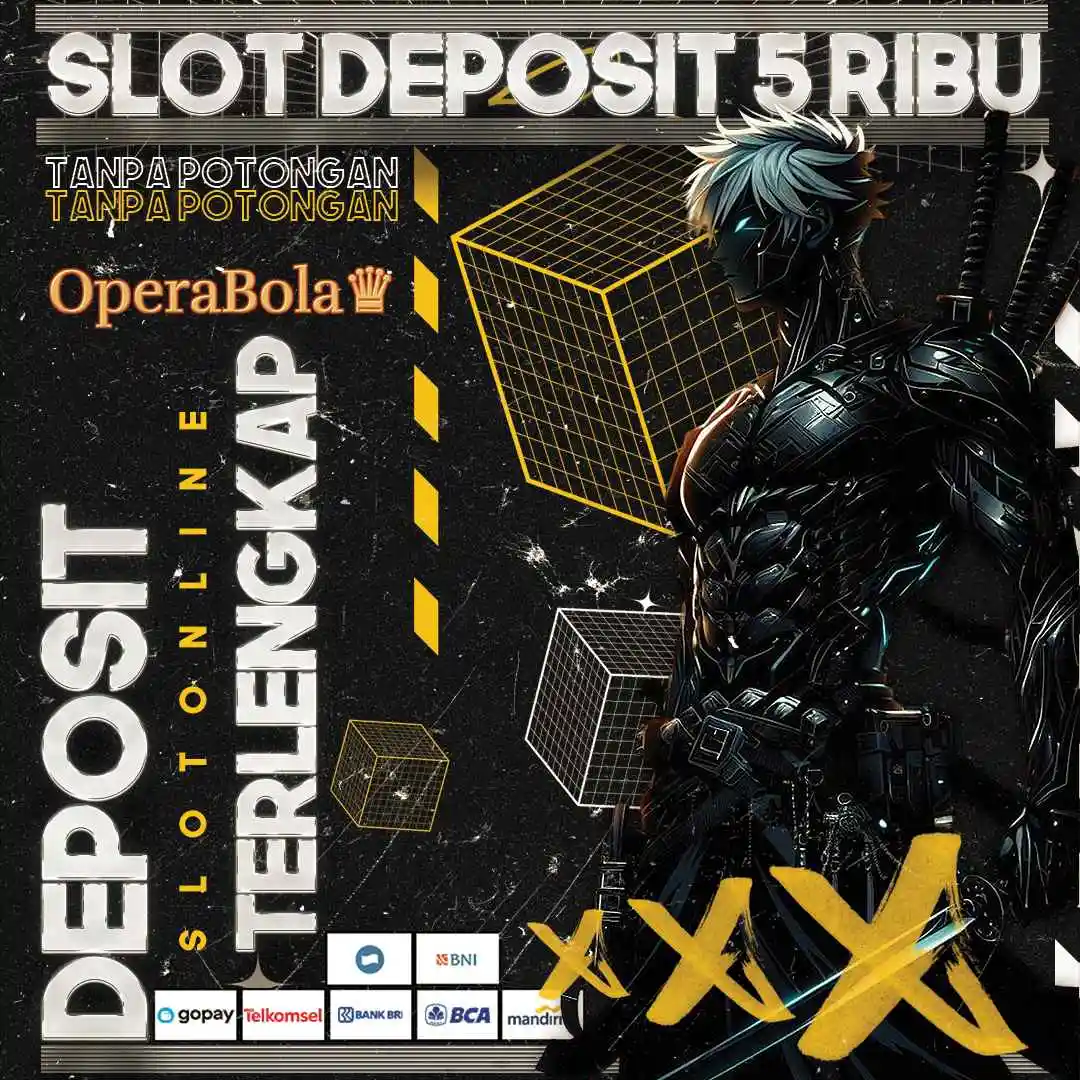Slot Deposit 5 Ribu - Main Slot Modal Pulsa 5000 di Operabola
Nikmati kepuasan bermain slot deposit 5 ribu di Operabola! Temukan cara memaksimalkan slot deposit 5000 Anda dan mainkan slot gacor pakai modal kecil di sini.
Operabola ialah salah satu dari situs slot yang melayani deposit mulai dari 5 ribu (5000). Jika Anda ingin memaksimalkan kepuasan bermain slot online menggunakan deposit kecil, maka operabola adalah tempat yang tepat. Operabola berkomitmen demi membuat situs deposit terjangkau agar bisa di nikmati oleh semua kalangan.
Keunggulan Slot Deposit 5 Ribu di Operabola
- Aksesibilitas: Deposit min 5 ribu memungkinkan semua orang untuk mencicipi permainan slot online tanpa terbebani oleh modal besar.
- Variasi Permainan: Operabola menyajikan beraneka ragam pilihan slot gacor dengan bettingan rendah yang bisa dimainkan dengan deposit 5 ribu.
- Peluang Kemenangan: Biarpun dengan modal kecil, Anda tetap mendapat kemungkinan untuk merenggut kemenangan besar di Operabola.
- Pengalaman Bermain nan Nyaman: Operabola menyodorkan proses deposit yang gampang dan cepat, serta tampilan user-friendly yang membangun pengalaman bermain slot online menjadi menyenangkan.
Cara deposit 5 ribu di Operabola
Untuk memulai slot deposit 5 ribu di Operabola Anda bisa menjalankan langkah-langkah berikut ini.
- Klik menu banking
- Pilih metode deposit yang Anda inginkan, seperti dompet digital, transfer bank atau pulsa.
- Ikuti instruksi yang disediakan guna menyelesaikan proses deposit.
Untuk waktu ini Anda bisa melakukan deposit dengan metode deposit transfer bank (BCA, BNI, BRI, BSI, CIMB Niaga, Jago, Mandiri, Permata, Seabank dan Jenius), deposit ewallet (Dana, Gopay, Linkaja, OVO, Shopeepay), deposit Qris dan deposit pulsa (Telkomsel dan XL). Kedapannya kami akan menambakan metode deposit lainnya. Hubungi team live chat kami jika Anda mengalami kendala.
Tips Memaksimalkan Slot Deposit 5 Ribu
- Memilih slot gacor memiliki RTP tinggi.
- Mulai dengan bettingan kecil atau terkecil.
- Gunakan bonus dan promo yang tersedia.
- Bermain dengan terkontrol dan sabar.
Rekomendasi Slot Gacor Deposit 5 Ribu
- Gates of Olympus 1000 (Pragmatic Play)
- LUXE Gates of Olympus (Pragmatic Play)
- Starlight Princess 1000 (Pragmatic Play)
- Tiger New Year (Slot88)
- Lucky Twins Wilds (Microgaming)
Risiko Bermain Slot Online
Penting untuk dipahami bahwa slot online merupakan permainan judi nan mempunyai risiko. Pastikan Anda bermain dengan penuh tanggung jawab dan hanya menggunakan uang lebih(bukan uang utama) anda karena anda bisa saja kehilangan uang tersebut.
Daftar di Operabola Sekarang dan Dapatkan Keuntungan Deposit Tanpa Potongan
Operabola adalah situs slot depo 5 ribu online terpercaya yang mempromosikan berbagai beraneka ragam bagi para membernya, termasuk keuntungan deposit tanpa potongan. Hal Ini berarti Anda bisa membuat deposit tanpa perlu khawatir kehilangan uang karena potongan. Dengan keuntungan ini, Anda bisa memaksimalkan modal awal Anda dan meningkatkan lagi peluang Anda untuk bisa mendapatkan kemenangan besar.

